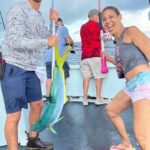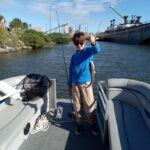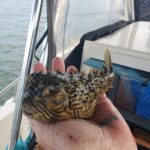Hundreds of marine species are dependent upon the health of the sea grasses and marine plants found in these shallow waters for nurseries and nutrition. Protecting this fragile shallow water system from destruction is essential to maintaining the fisheries we all enjoy and of paramount importance to FGA. Be aware of your depth and ever mindful your prop is not in contact with or in danger of damaging any marine plant or organism.
Approach shallowest fishing areas with the care and stealth provided by these two methods which should yield better angling results.
Professional anglers should not need to rely on disturbing another angler’s success to provide their own. Choose another area or another time to fish rather than encroach on someone already fishing a particular area. Lead by example and don’t follow another guide into a small area, yet expect others to “honor” this same area. Again, stagger fishing times in order to secure success. Use the slack times to find new, “unfished” areas of success rather than “hold” areas for other guides to fish later. Discovering a “new” productive area displays your talents to your clients as well as improves your overall skills.
The laws protecting the marine environment are constantly changing. Keep apprised of all regulations, regarding both, FISHING AND ACCESS, pertinent to your regions and waters. Report fish and game violations to FFWCC promptly, complete with registration numbers, license plates, and precise descriptions.
Never allow glass bottles on board as they are dangerous to your clients and the environment. Plastics/petroleum litter violations and fines are much more severe for guides with commercial licenses and permits. Be cautious with, or disallow plastic bags on board and never discard any monofilament into the environment. Obey all petroleum products laws and prohibitions. Bring all trash back to the dock!



